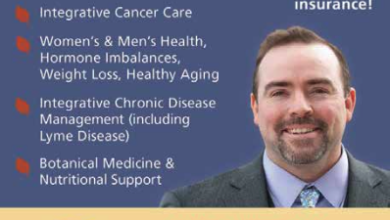How I Approach a Cancer Diagnosis
By Susan Saccomanno, ND, LAc
People respond to hearing they have a cancer diagnosis in many different ways – shock, fear, motivation, or a reckoning with the life they have lived and what they would like to create going forward. One thing is certain though – they will be introduced to the labyrinthine medical system, which has strict guidelines regarding treatment and few resources for individualized care or for improving the health of the patient. I offer a different model.
Focusing the Inquiry
To help organize my approach, I look through three related “lenses:”
1. Your day-to-day health. How do you feel? What other health conditions do you have? How do you sleep, digest, move your body? I also use Chinese pulse, tongue, and abdominal diagnosis to develop my treatment ideas.
2. A detailed lab investigation. In addition to blood counts, metabolic organ function, and lipid levels, I assess, where applicable, markers of inflammation, tissue fibrosis, angiogenesis, and hormone levels, as well as specific cancer markers.
3. Lastly, I study the pathology of the tumor. What characteristics can we exploit to enhance our therapies? Does the pathology give us clues about optimal drug choices?
Putting it All Together
My goal for you is to have the greatest longevity with the best quality of life, and that means optimizing your health through all three lenses. Like a 3-legged stool, each leg must be in balance. Too often the focus is solely on the cancer without addressing the totality of health. Consider one woman with a breast cancer diagnosis who has high inflammatory markers with anxiety and insomnia, as compared with another woman whose hormones and blood sugars are abnormal. For optimal results, different patients need different approaches.
Stacking the Deck
The basis of all my treatment plans is a combination of diet, lifestyle, and botanical medicine. Herbal medicine is close to my heart and I practice both Western and Chinese herbalism. Being natural substances, herbs communicate beautifully with our human physiology. I also recommend a broad array of nutraceuticals and minerals. Occasionally over-the-counter medications can be added to offer more targeted activity. In addition, most of my patients are concomitantly utilizing conventional oncology drugs, with which I am very familiar. As diverse as people and cancers are, I believe a broadly supportive approach offers the greatest benefit.



